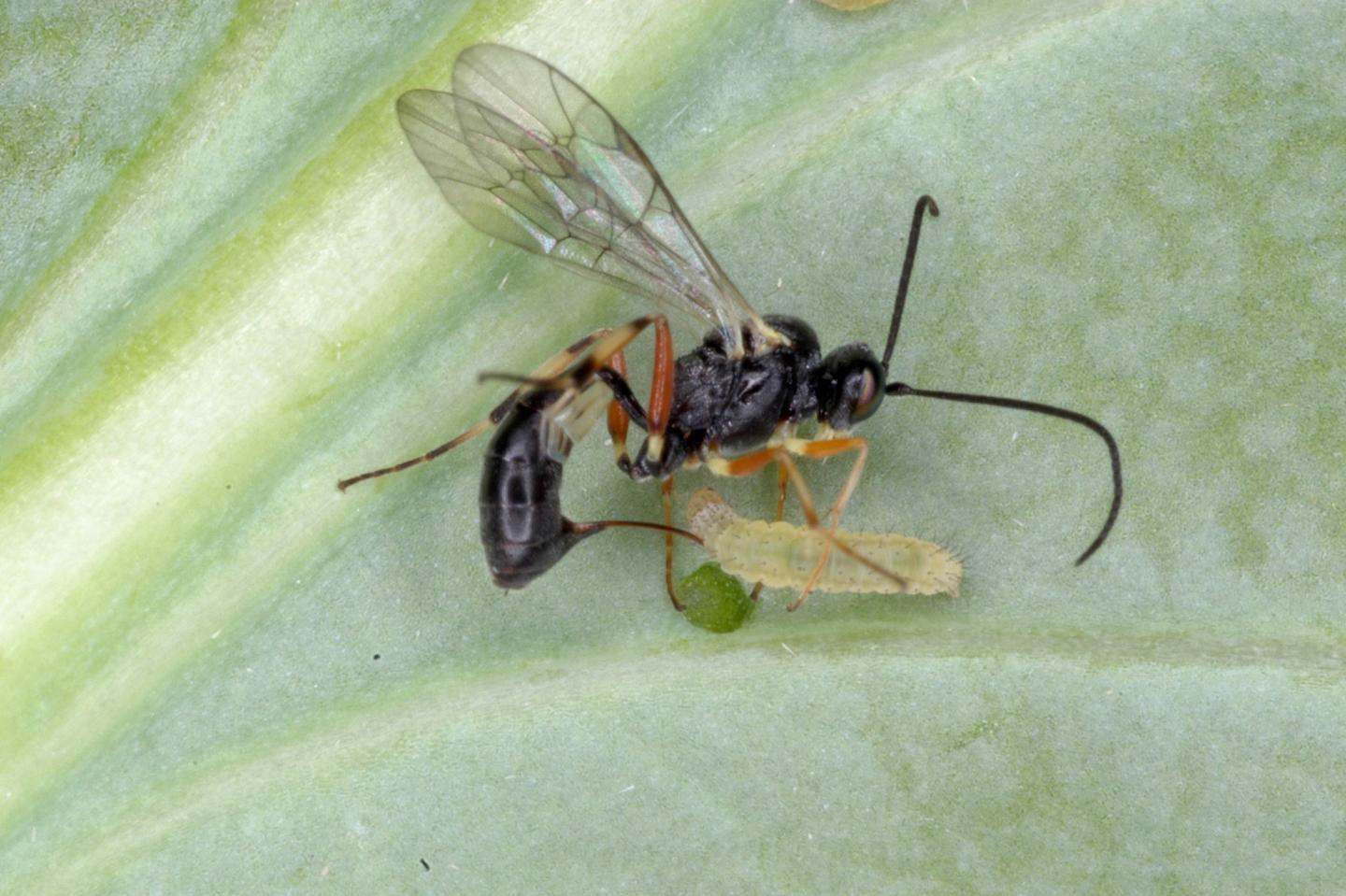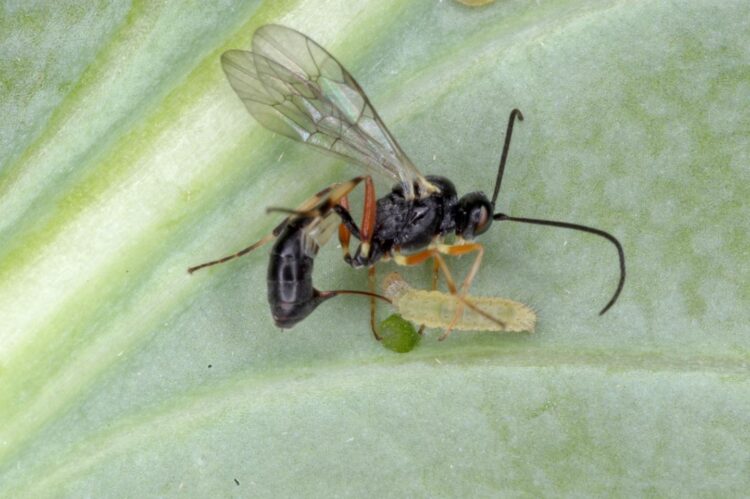
Credit: The University of Queensland
Biological control of insect pests – where ‘natural enemies’ keep pests at bay – is saving farmers in Asia and the Pacific billions of dollars, according to University of Queensland-led research.
Dr Kris Wyckhuys from UQ’s School of Biological Sciences said biological control involved the careful release of an exotic natural enemy from a pest’s native habitat.
“Scientists meticulously choose co-evolved beneficial insects that are the most effective and least likely to pose ecological upsets,” Dr Wyckhuys said.
“We’ve reviewed how biological control introductions have effectively managed 43 insect pests in food, feed and fibre crops in the Asia-Pacific region over a century.”
The team found that biological control has helped regulate invasive pest threats in multiple key food crops such as banana, breadfruit and coconut.
“Our work shows these techniques are saving farmers in Asia around $20.1 billion to $26.8 billion (US$14.6-19.5 billion) per year,” Dr Wyckhuys said.
“That’s a phenomenal amount of money and benefit, particularly when compared to other innovations in the agricultural sector.
“A good point of comparison is the Green Revolution in Asia during the late 1960s, which tripled the output of local rice production but also saw a rise of chemical fertilisers, agrochemicals and newer methods of cultivation.
“A large part of the Green Revolution impacts can be ascribed to double-yielding rice varieties, which generated $4.8 billion (US$4.3 billion) per year in Asia.”
UQ’s Associate Professor Michael Furlong said recognition of the success of biological control might lead to greater uptake and more resilient, prosperous farming globally.
“Biological control offers great opportunities for some of the world’s poorest farmers,” Dr Furlong said.
“It’s promoted rural growth and prosperity even in marginal, poorly endowed, non-rice environments.
“A great example is the coconut scale (Aspidiotus destructor), which jeopardised the economic prosperity and food security of entire nations.
“This coconut scale posed a serious problem to crops like coconut, bananas and copra industries in Fiji at the start of the Twentieth Century.
“In 1928, lady beetles from Trinidad and millimetre-long parasitic wasps were introduced, and the results were almost immediate.
“Coconut scale ceased to be an economic issue on all of the main Fijian islands within nine months, and after 18 months, the scale was so rare it was difficult to find.
“These innovative approaches, with increasingly better science, are helping feed the world, safeguard on-farm biodiversity and increase farmers’ quality of life.
“We’re hoping this research provides lessons for future efforts to mitigate invasive species, restore ecological resilience, and sustainably increase the output of our global food system.”
###
The research has been published in Nature Ecology and Evolution (DOI: 10.1038/s41559-020-01294-y).
Media Contact
Michael Furlong
[email protected]
Original Source
https:/
Related Journal Article
http://dx.





